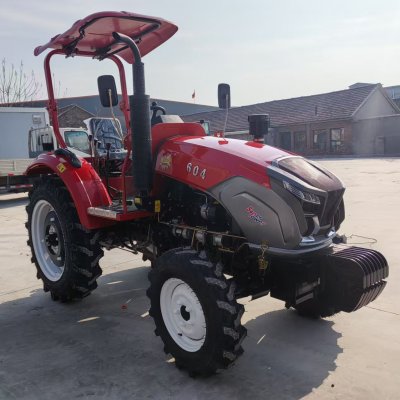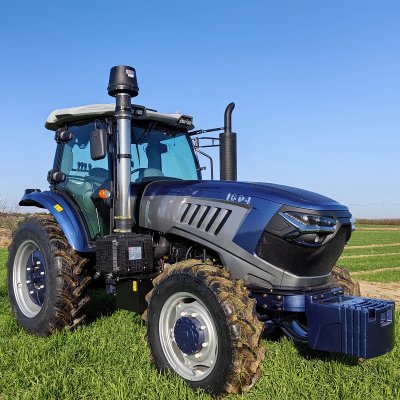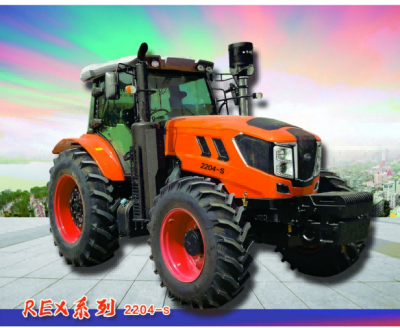Are Diesel Tractors Better Than Gas?
In the agricultural sector, tractors are the workhorses that ensure the smooth operation of farms. When it comes to choosing a tractor, a common question farmers often face is whether a diesel tractor is superior to a gas-powered one. The answer, like many things in life, hinges on a variety of factors.
Diesel tractors have long been favored by farmers due to numerous advantages. One of the primary strengths of diesel engines is their high fuel efficiency. Per liter, diesel contains more energy than gasoline. This means that diesel tractors can generally cover a longer distance with a full tank of fuel. For farmers who need to carry out large - scale operations such as sowing, harvesting, or other farming activities, this aspect is of great significance.
Apart from their fuel efficiency, diesel tractors tend to be more powerful than their gas counterparts. Diesel engines are engineered to generate high torque at low RPMs. This makes them ideal for heavy - duty tasks such as plowing, tilling, and hauling heavy loads. This additional power can make a substantial difference when working in challenging terrains or dealing with tough soil conditions.
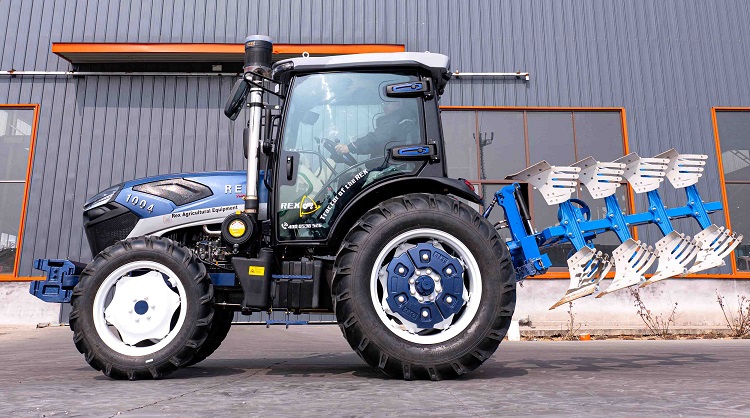
Another advantage of diesel tractors lies in their durability. Diesel engines are designed to endure the harsh demands of heavy use and are usually more reliable than gas engines. They typically have fewer moving parts, which means there are fewer components that can break down or malfunction. In the long run, this can lead to lower maintenance costs and less downtime for farmers who rely on their tractors to get the job done.
However, diesel tractors are not without their flaws. One of the main drawbacks of diesel engines is their relatively high upfront cost. The purchase price of diesel tractors is often more expensive than that of gas - powered tractors. This can be a significant hurdle for some farmers, especially those on a tight budget. Additionally, in some regions, the price of diesel may be higher than that of gasoline, which also affects the overall operating cost of diesel tractors.
Another potential shortcoming of diesel tractors is the issue of emissions. Diesel engines produce more particulate matter and nitrogen oxides than gas engines, which can contribute to air pollution and environmental damage. In recent years, though, significant progress has been made in diesel engine technology to reduce emissions and improve air quality. Many modern diesel tractors are now equipped with advanced emission control systems that help minimize their environmental impact.
On the other hand, gas - powered tractors also have their own set of pros and cons. One of the main benefits of gas engines is their lower upfront cost. The purchase price of gas tractors is usually cheaper than that of diesel tractors, which can be a more appealing option for farmers looking to save money. Moreover, gasoline is often more widely available than diesel, making it more convenient to refuel a gas - powered tractor, especially in remote areas.
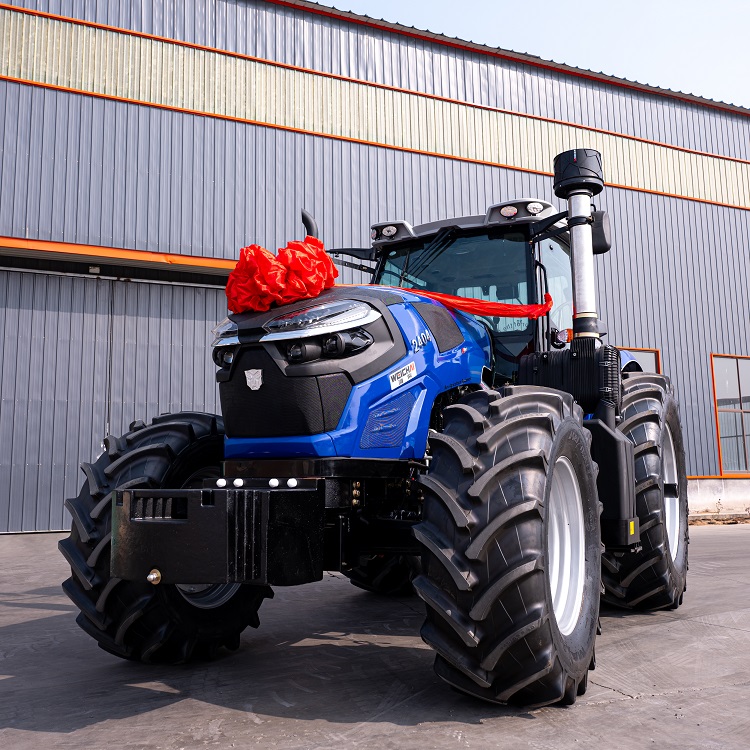
Gas engines are generally lighter and more compact than diesel engines. This makes gas tractors more maneuverable and easier to operate in confined spaces. This is particularly useful for farmers who need to work in small fields or navigate around obstacles such as trees, fences, or buildings.
Nevertheless, gas - powered tractors also have some notable disadvantages. One of the main drawbacks of gas engines is their lower fuel efficiency. Per liter, gasoline contains less energy than diesel, which means that gas tractors usually need to be refueled more frequently than diesel tractors. For farmers who spend a long time in the fields, this can be inconvenient as it can disrupt their work schedule and increase overall operating costs.
Another potential disadvantage of gas - powered tractors is their lower power output. Generally, gas engines are not as powerful as diesel engines, which means that gas tractors may not be able to handle heavy - duty tasks as effectively as diesel tractors. This can be a problem for farmers who need to plow, till, or haul heavy loads, as they may find that a gas - powered tractor simply lacks the power to complete the job.
In conclusion, whether diesel tractors are better than gas - powered tractors depends on a range of factors, including the specific needs and preferences of farmers, the type of work the tractor will be used for, and the cost and availability of fuel in the area. While diesel tractors offer advantages such as high fuel efficiency, strong power, and good durability, they come with a higher upfront cost and may produce more emissions than gas - powered tractors. On the other hand, gas - powered tractors are generally lower in purchase cost and more maneuverable, but they tend to be less fuel - efficient and less powerful than diesel tractors. Ultimately, the best choice for farmers will depend on a careful consideration of these and other factors, as well as a comprehensive assessment of the specific requirements of their farming operations.

